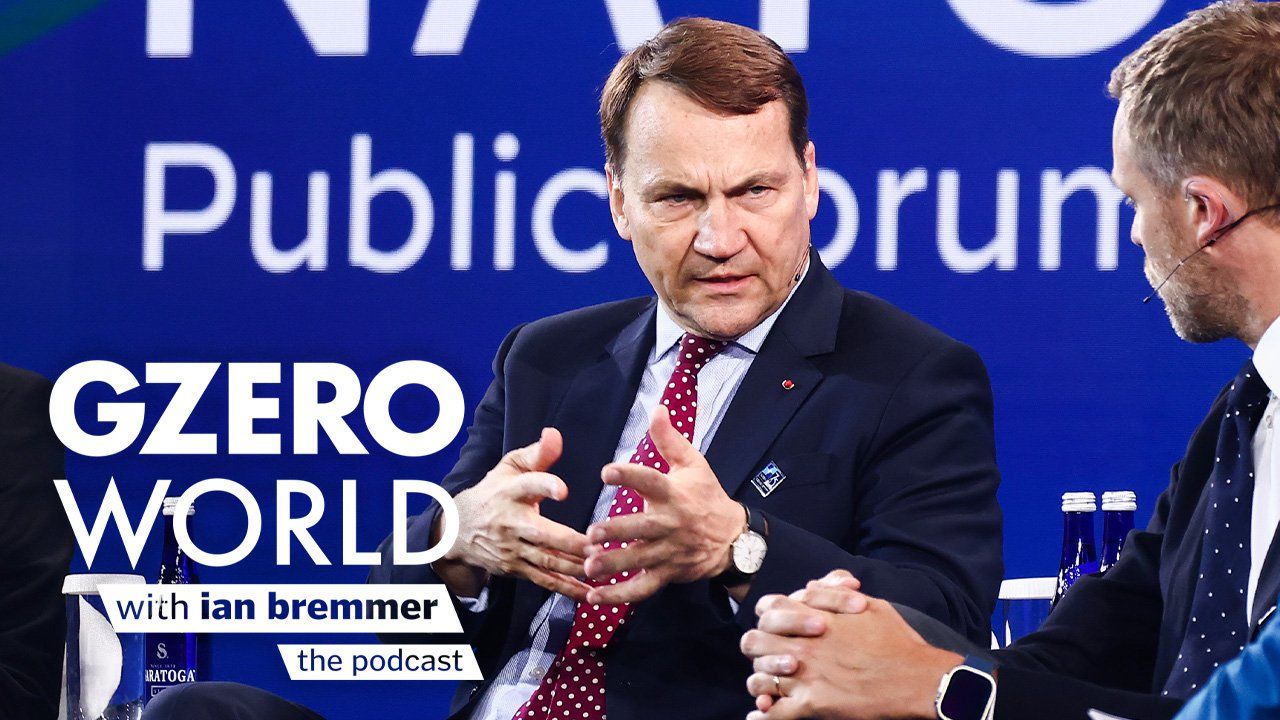Listen: Does Ukraine have the strength, stamina, and support to win the war against Russia? On the GZERO World Podcast, Ian Bremmer sat down with Polish Foreign Minister Radek Sikorski on the sidelines of NATO’s 75th-anniversary summit in Washington, DC, for his perspective on the war, European unity, and whether NATO allies can remain united long enough to see Ukraine through to victory. Despite uncertainty about the 2024 US election, Ukraine’s struggle to recruit new troops, and rogue alliance member Hungarian Prime Minister Victor Orbán meeting with Putin, Sikorski is confident Ukraine will ultimately prevail.
Poland is an important part of that defense strategy. The country, which has a 300-mile border with Ukraine, contributes a larger percentage of its GDP to defense spending than any other NATO member, including the US, and has taken in almost a million Ukrainian refugees. Sikorski says that NATO is “back to basics” in its original mission of repelling and defending against an aggressive Russia and that Putin severely misjudged the strength of European and NATO unity in the lead-up to the invasion. Two and a half years into a bloody, brutal war with no end in sight, making sure that unity remains rock solid for as long as Ukraine needs is an urgent priority.
Subscribe to the GZERO World Podcast on Apple Podcasts, Spotify, or your preferred podcast platform, to receive new episodes as soon as they're published.
- Ian Explains: Why Biden is the focus of the NATO Summit ›
- NATO Summit: Biden's uncertain future worries US allies ›
- Podcast: Why Putin will fail: former Finnish PM Alexander Stubb ›
- Is Ukraine running out of time? Former US ambassador Ivo Daalder sizes up the Russia-Ukraine war ›
- Czech president Petr Pavel: Ukraine war fatigue weakening NATO unity against Russia - GZERO Media ›
